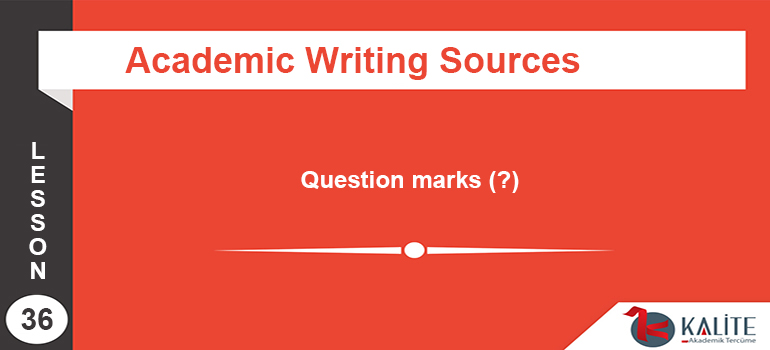
Question marks (?)
Considering the numbers of questions we try to answer in academics, we use question marks infrequently. You might use them to state your research question, to clarify an issue that requires future research, or once in a while to pose a question to for your reader to consider as you proceed with your discussion.
Normally, however, you should avoid using questions in your formal or academic writing.
Some tips for questions and question marks
- Avoid rhetorical questions.
- Avoid genuine but unnecessary questions. Asking a genuine question in formal text is odd, since usually you won’t have access to your audience’s response.
So why ask the question?I suspect that most genuine questions (as with the one I’ve just struck out) are posed to the writer by the writer as she’s writing, in order for her to find some direction for the next sentence; much of the time such questions are unnecessary. - For questions embedded in statements. In some situations, you might be unsure of whether to use a question mark, as when you embed your question in a statement. In cases like the one below, use a question mark rather than a period, even though you’re stating a question rather than asking one.
| Examples (with a nod to Dirty Harry) |
| The question is, do you feel lucky, punk. |
| The question is, do you feel lucky, punk? |


